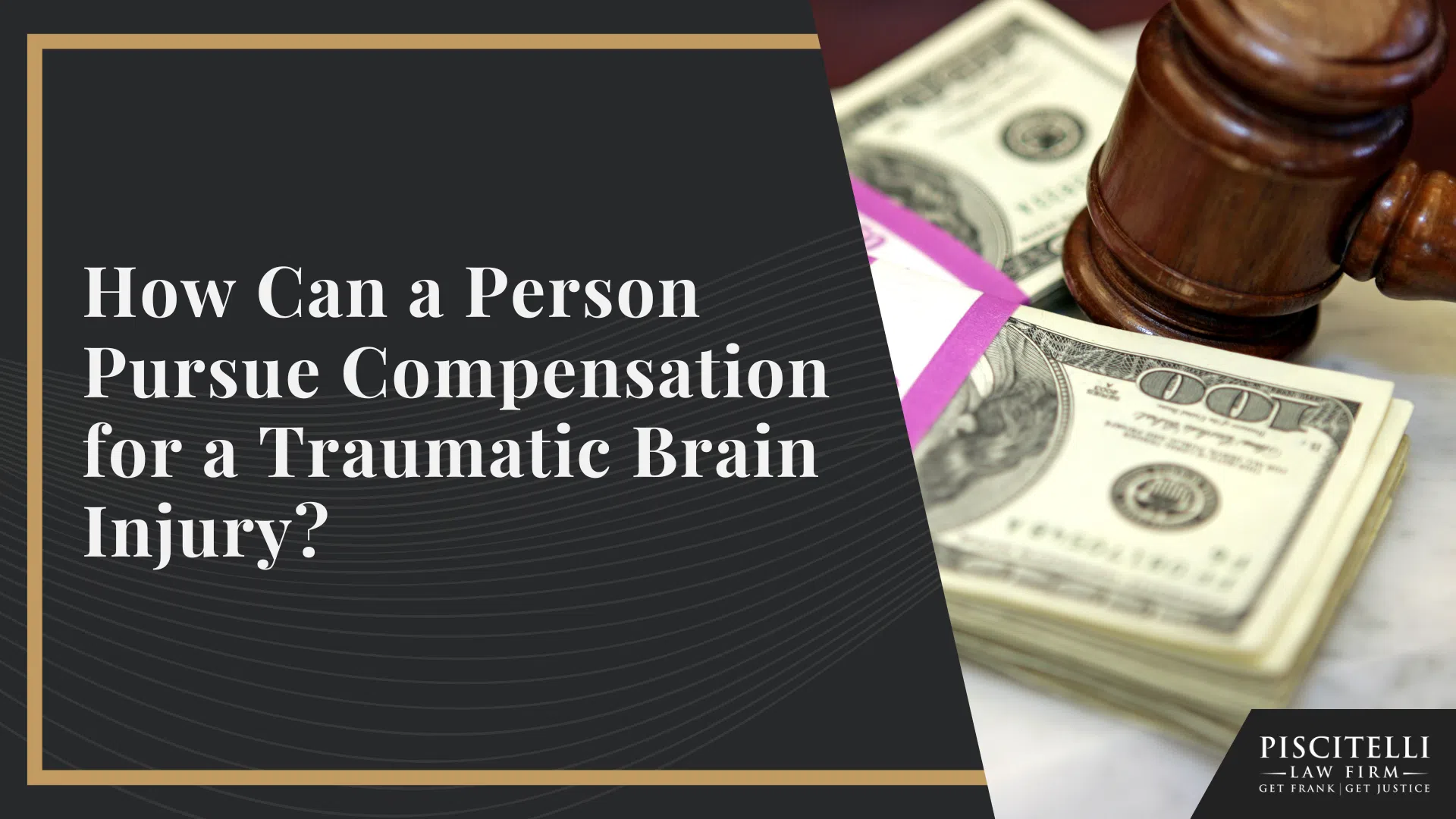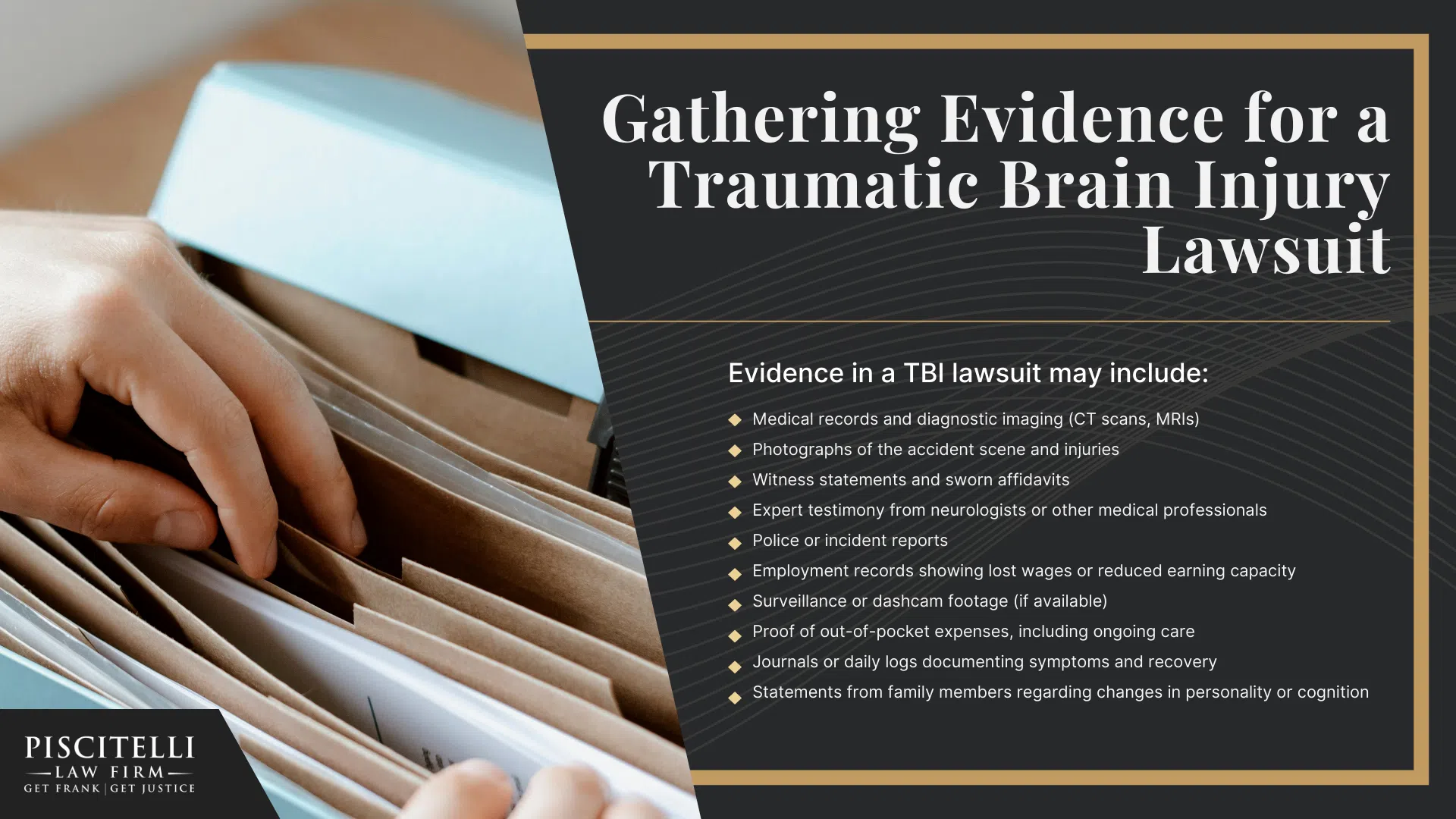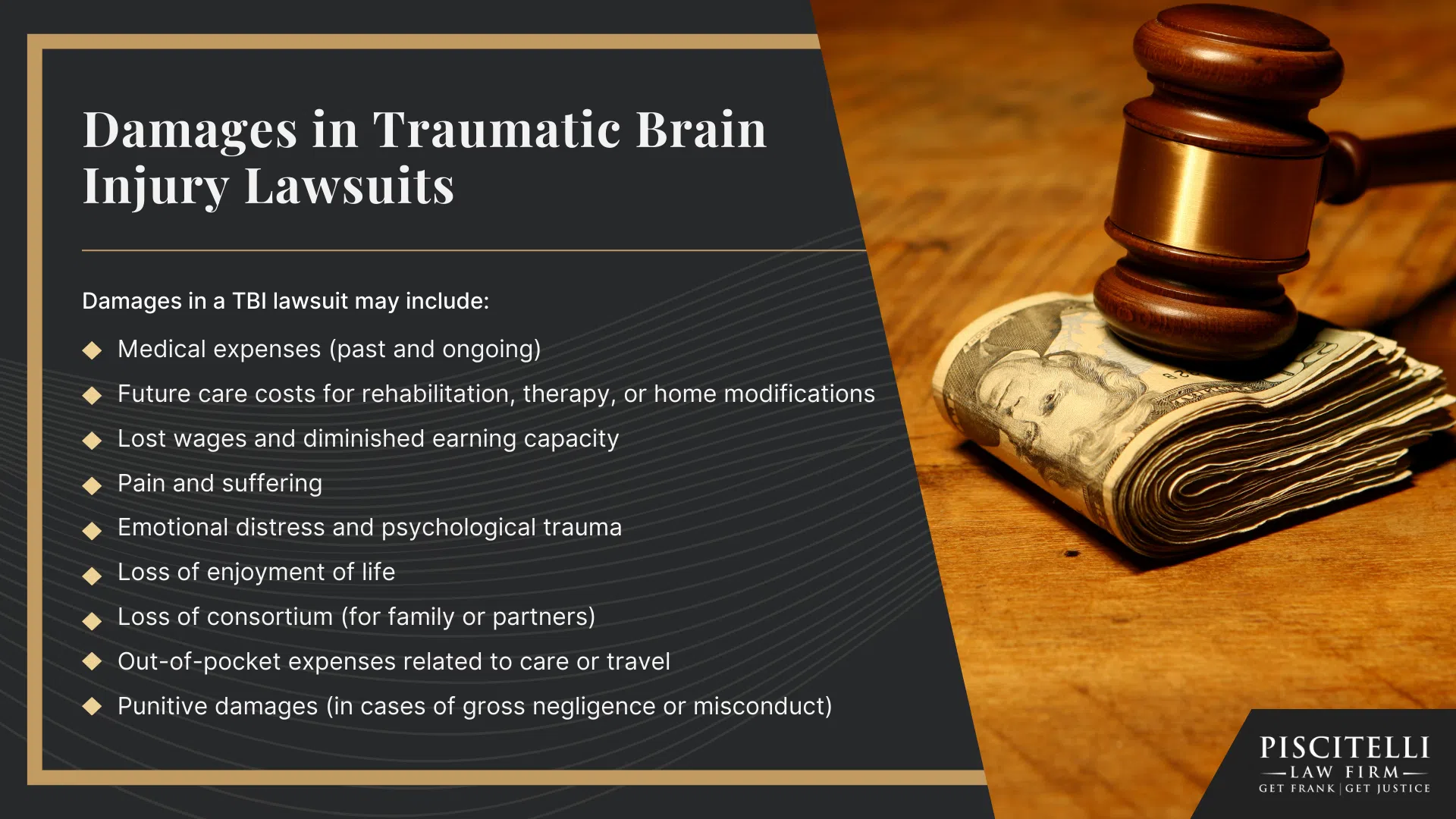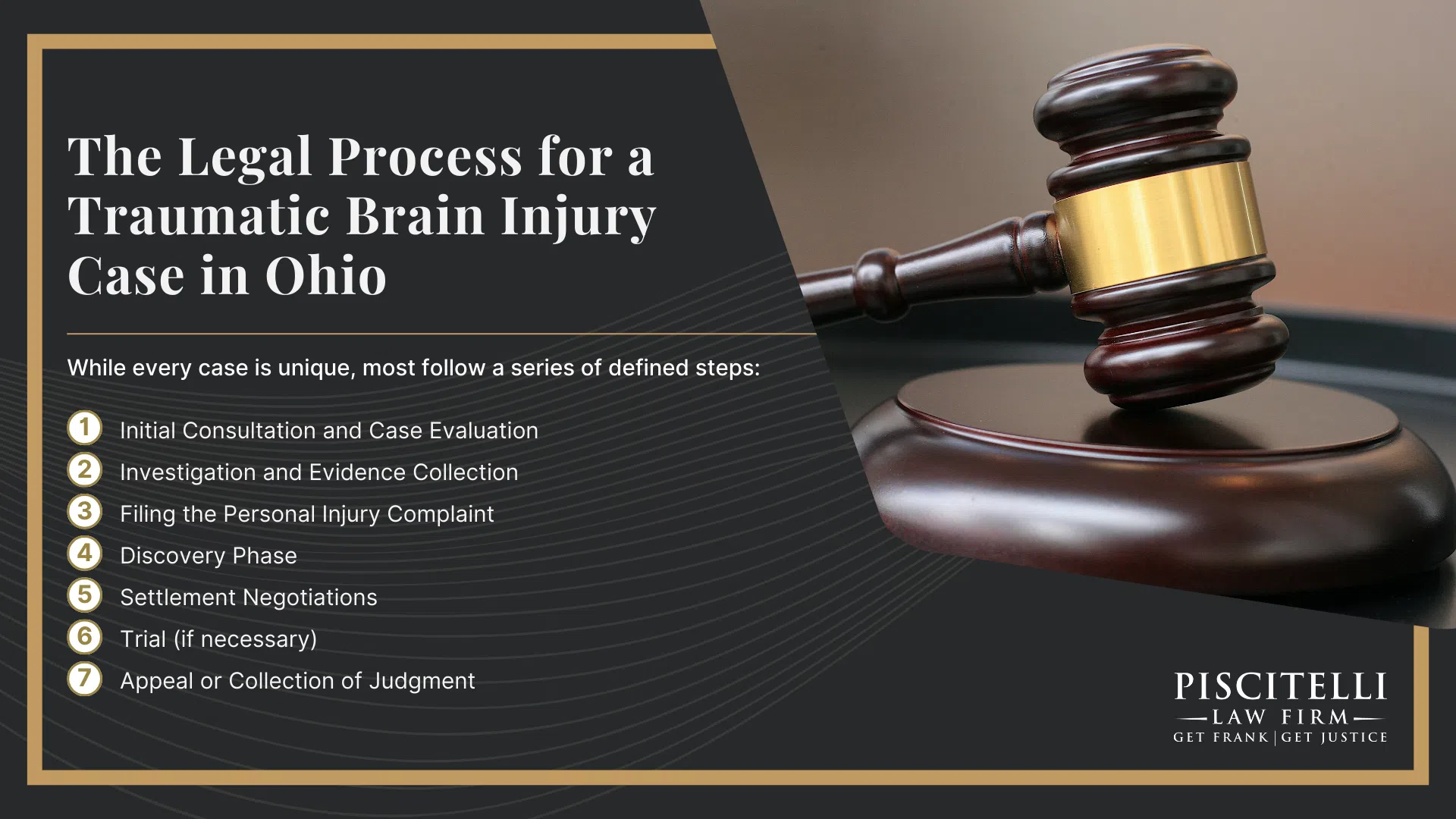A traumatic brain injury (TBI) is a disruption in normal brain function caused by an external force such as a blow, jolt, or penetration to the head.
These injuries range from mild traumatic brain injury (mild TBI) (commonly known as a concussion) to severe TBI, which can cause permanent changes to cognition, behavior, and physical function.
TBIs can affect brain tissue, blood vessels, or both, and often result in life-changing complications for the injured person and their loved ones.
Some TBIs occur when the head suddenly moves in one or more directions, causing the brain to strike the inside of the skull.
Others are the result of blunt trauma or open head injury, such as an object penetrating the skull and damaging brain structures.
In addition to trauma-related brain injuries, acquired brain injury may result from internal medical events like oxygen deprivation, stroke, or infection.
Whether caused by car accidents, medical malpractice, or other forms of negligence, the consequences can include permanent disability, emotional instability, and a lifetime of medical care.
TBIs can also occur alongside skull fracture or other orthopedic injuries that complicate diagnosis and recovery.
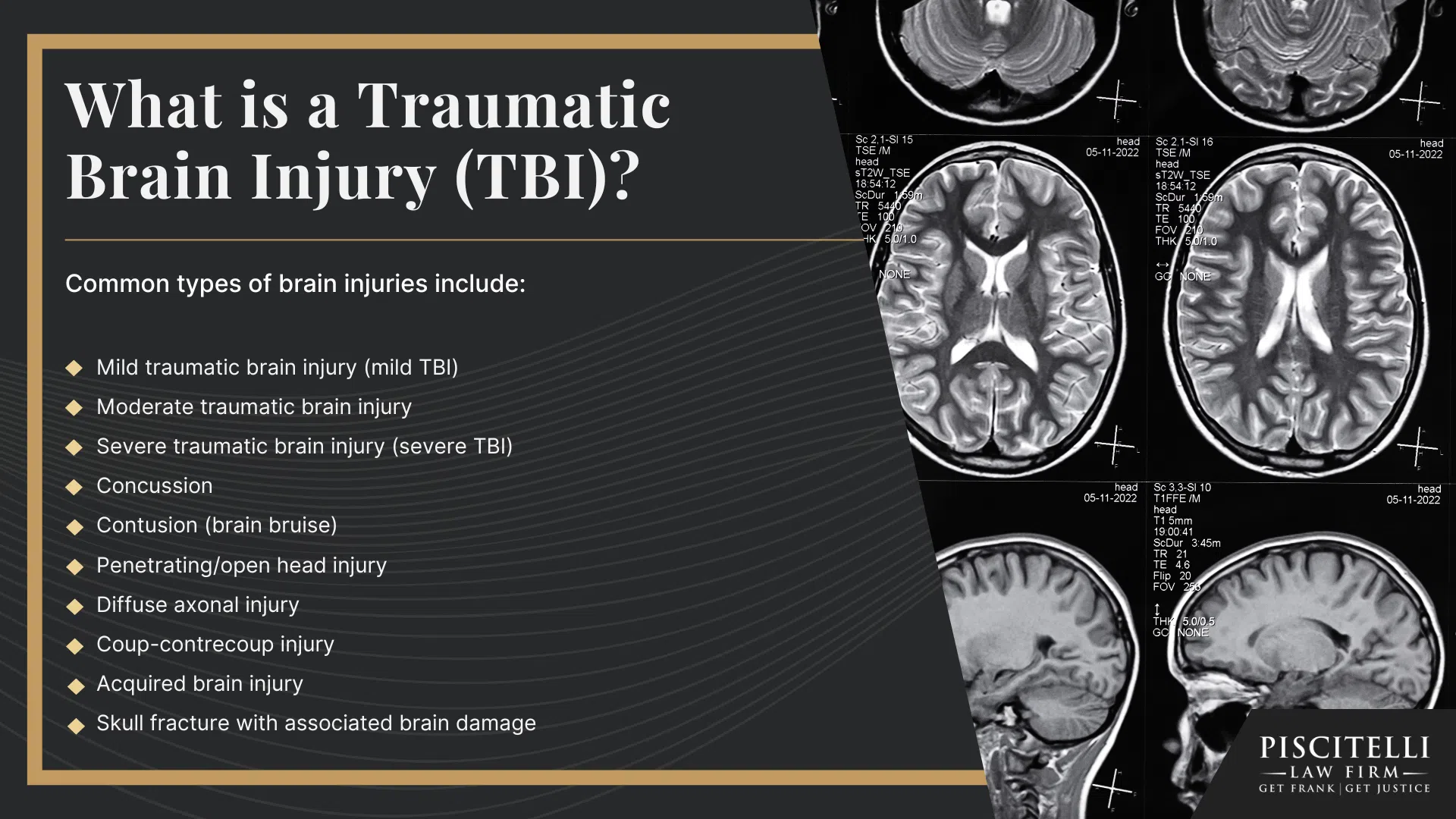
Common types of brain injuries include:
- Mild traumatic brain injury (mild TBI)
- Moderate traumatic brain injury
- Severe traumatic brain injury (severe TBI)
- Concussion
- Contusion (brain bruise)
- Penetrating/open head injury
- Diffuse axonal injury
- Coup-contrecoup injury
- Acquired brain injury (non-traumatic, such as from stroke or lack of oxygen)
- Skull fracture with associated brain damage
Brain injury survivors may experience cognitive defects, mobility issues, or emotional disturbances depending on the area of the brain affected.
These injuries are often invisible on the surface but devastating in function.
Many require intensive rehabilitation, repeated medical evaluations, and long-term care planning.
Early identification, proper classification, and immediate treatment are critical to improving outcomes.
Because the signs of a TBI may not be immediately obvious, it’s essential to seek medical care after any significant head injury, even if symptoms appear mild at first.
Common Causes of Traumatic Brain Injuries
Traumatic brain injuries (TBIs) result from a sudden impact, jolt, or disruption of normal brain function, and can occur in a wide range of everyday and high-risk situations.
In TBI cases, the leading cause is often a slip and fall or a car accident, though less visible causes (like medical malpractice or near-drowning) can also cause severe damage.
These incidents may involve direct trauma to the skull, deprivation of oxygen to the brain, or negligence by medical professionals during critical procedures.
Ohio sees a high number of brain injury cases resulting from slip and falls, workplace accidents, and violent assaults.
Many injuries happen during recreational activities, where contact sports, cycling, and diving accidents are common culprits.
TBIs may also result from surgical errors, anesthesia mistakes, or failure to diagnose strokes or internal bleeding.
Identifying the source of the injury is essential for establishing liability and seeking appropriate compensation.
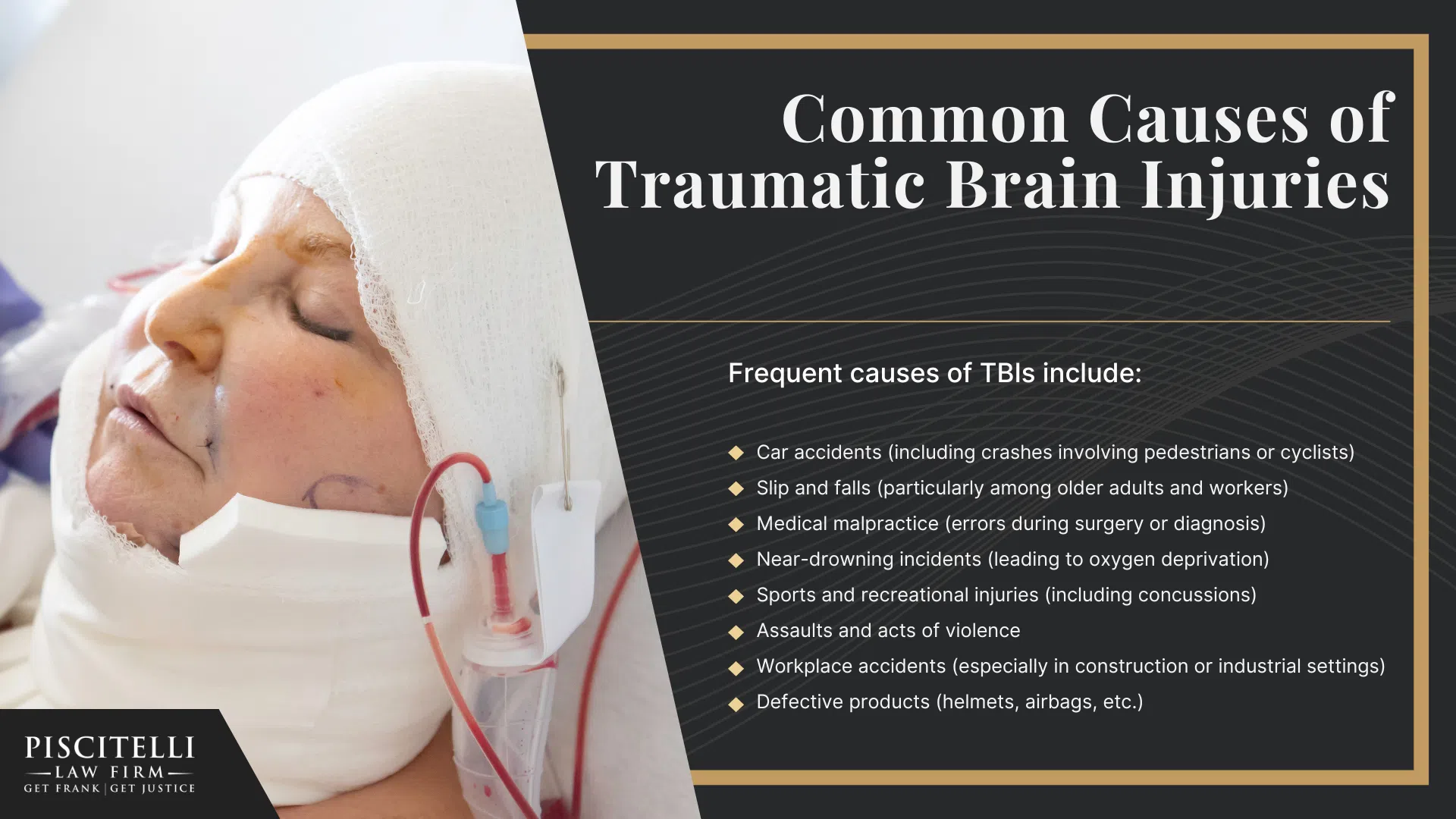
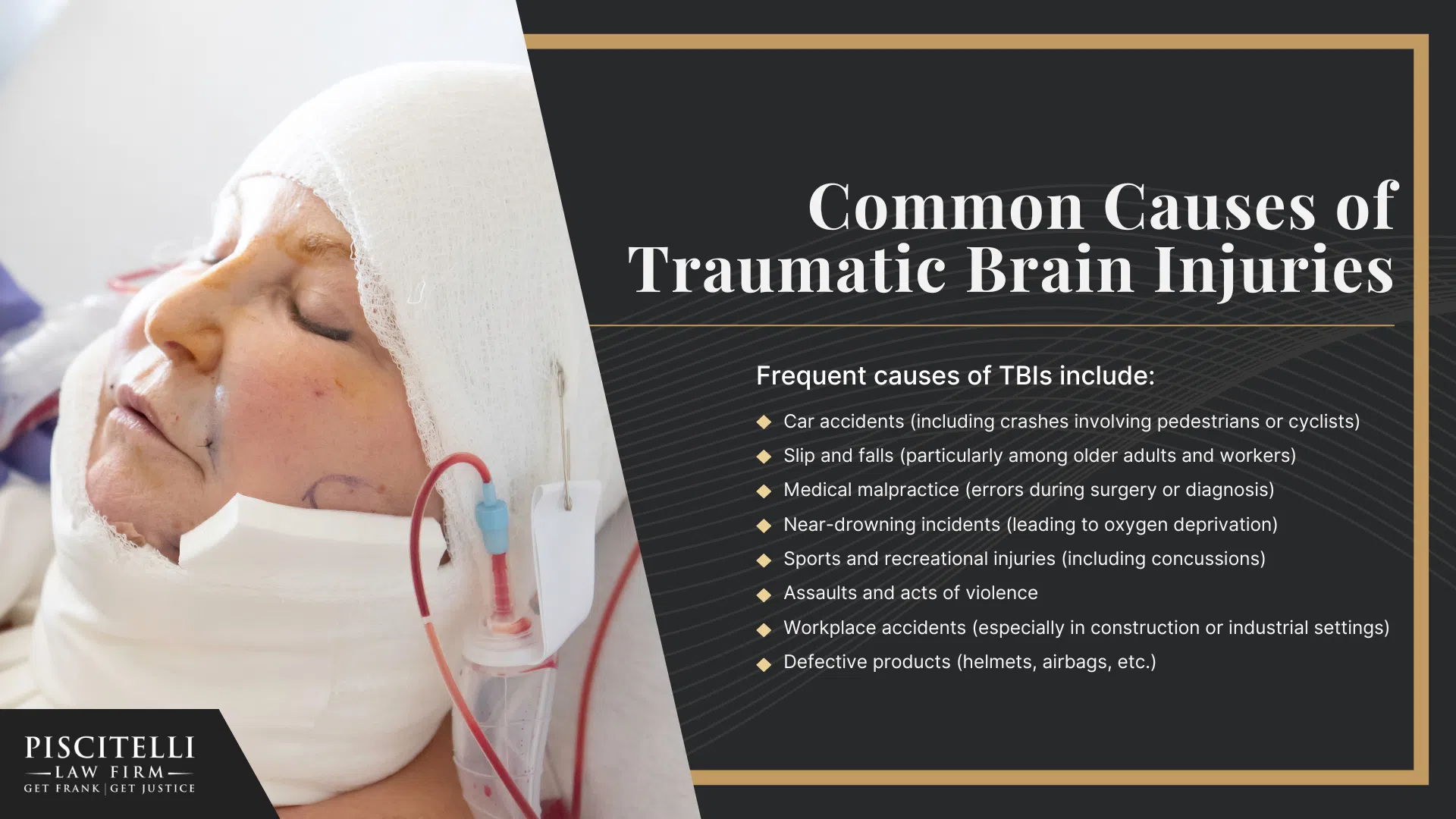
Frequent causes of TBIs include:
- Car accidents (including crashes involving pedestrians or cyclists)
- Slip and falls (particularly among older adults and workers)
- Medical malpractice (errors during surgery or diagnosis)
- Near-drowning incidents (leading to oxygen deprivation)
- Sports and recreational injuries (including concussions)
- Assaults and acts of violence
- Workplace accidents (especially in construction or industrial settings)
- Defective products (helmets, airbags, etc.)
No matter the cause, TBI survivors often face long-term complications that require ongoing care, rehabilitation, and support.
Understanding how and where the injury occurred helps attorneys build a strong case for compensation.
It also plays a key role in identifying negligent parties and determining what safeguards may have failed.
If someone else’s actions or inaction led to the trauma, you may be entitled to file a claim and hold them accountable.
Complications and Difficulties of Traumatic Brain Injuries
Traumatic brain injuries (TBIs) can cause profound and long-lasting disruptions to an individual’s physical, cognitive, and emotional functioning.
These injuries often extend far beyond what is visible on scans or at the accident scene, leading many survivors to suffer from invisible injuries that are no less debilitating.
Unlike broken bones or external wounds, TBIs may alter how a person thinks, feels, and behaves, affecting not only their quality of life but also their relationships, employment, and independence.
Some of the most common cognitive complications include memory loss, problem-solving difficulty, and shortened attention span, all of which can severely impair day-to-day functioning.
Many patients experience emotional regulation issues, irritability, anxiety, and emotional distress, sometimes for years following the injury.
Others develop long-term psychological conditions like depression or post-traumatic stress disorder, especially in cases involving medical malpractice, car accidents, or acts of violence.
Timely and consistent medical treatment is essential to managing symptoms, but even with expert care, recovery can be unpredictable.
Every TBI is different, and some symptoms may emerge or worsen over time, especially under physical or emotional stress.
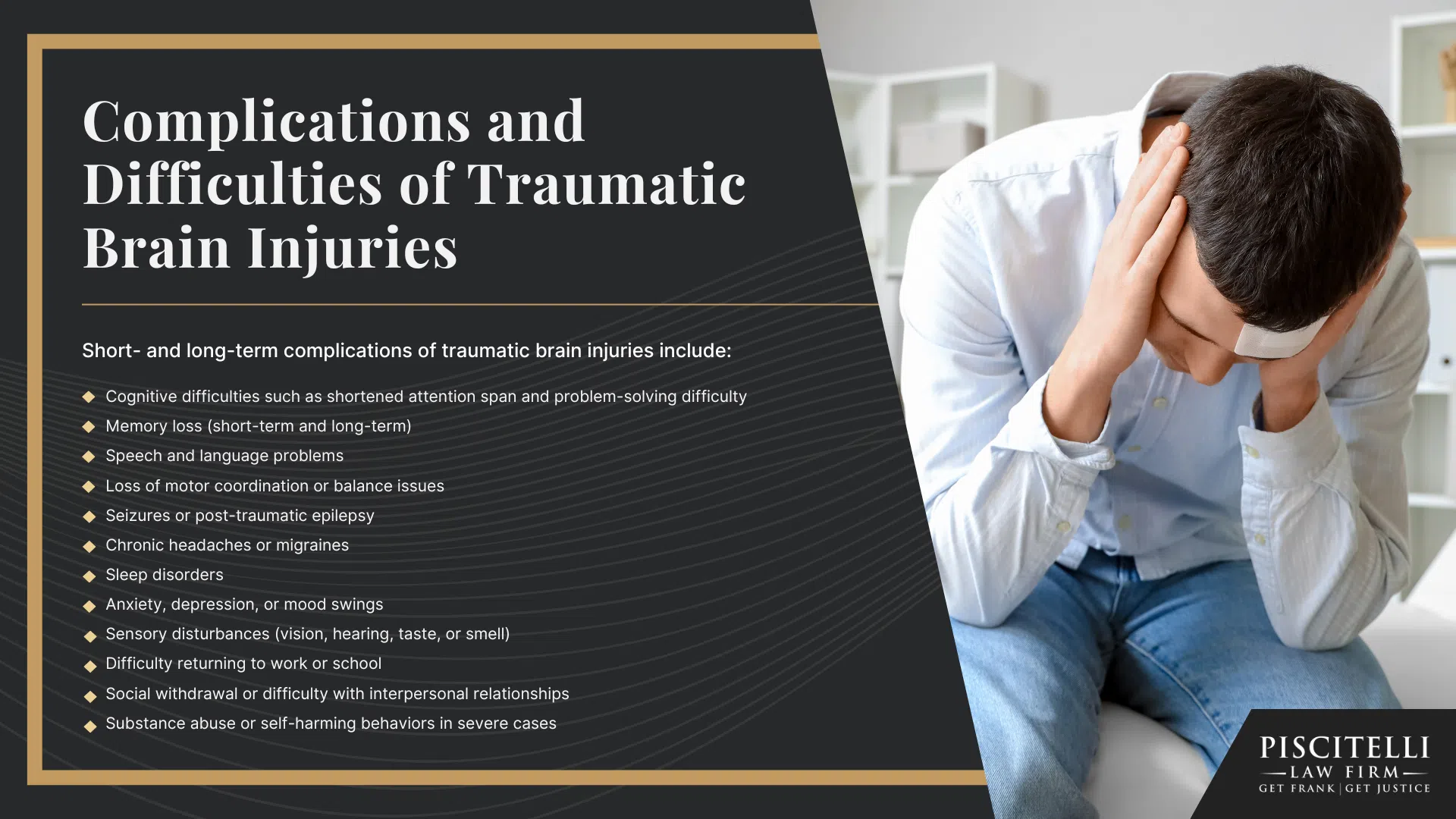
Short- and long-term complications of traumatic brain injuries include:
- Cognitive difficulties such as shortened attention span and problem-solving difficulty
- Memory loss (short-term and long-term)
- Speech and language problems
- Loss of motor coordination or balance issues
- Seizures or post-traumatic epilepsy
- Chronic headaches or migraines
- Sleep disorders
- Anxiety, depression, or mood swings
- Sensory disturbances (vision, hearing, taste, or smell)
- Difficulty returning to work or school
- Social withdrawal or difficulty with interpersonal relationships
- Substance abuse or self-harming behaviors in severe cases
These complications can affect every facet of a person’s life and often place a heavy burden on caregivers and family members.
The longer symptoms go untreated, the more likely it is that they will cause permanent disability or life-long dependency.
A skilled attorney can help brain injury survivors pursue full compensation not just for medical bills, but also for ongoing rehabilitation, occupational therapy, and lost future income.
Recognizing the full extent of TBI-related complications is crucial when negotiating with insurance companies or presenting a case in court.


